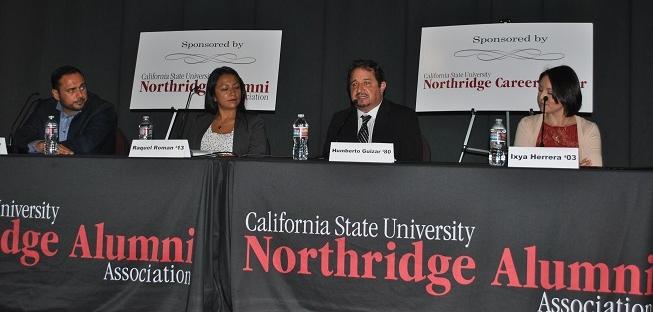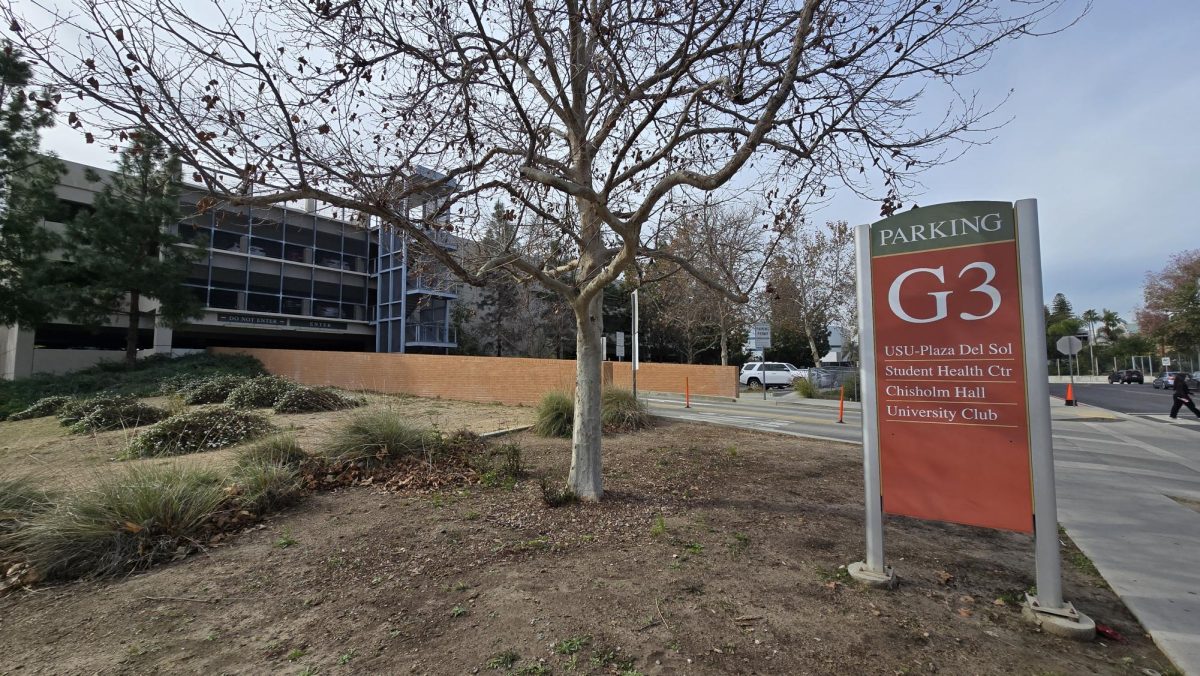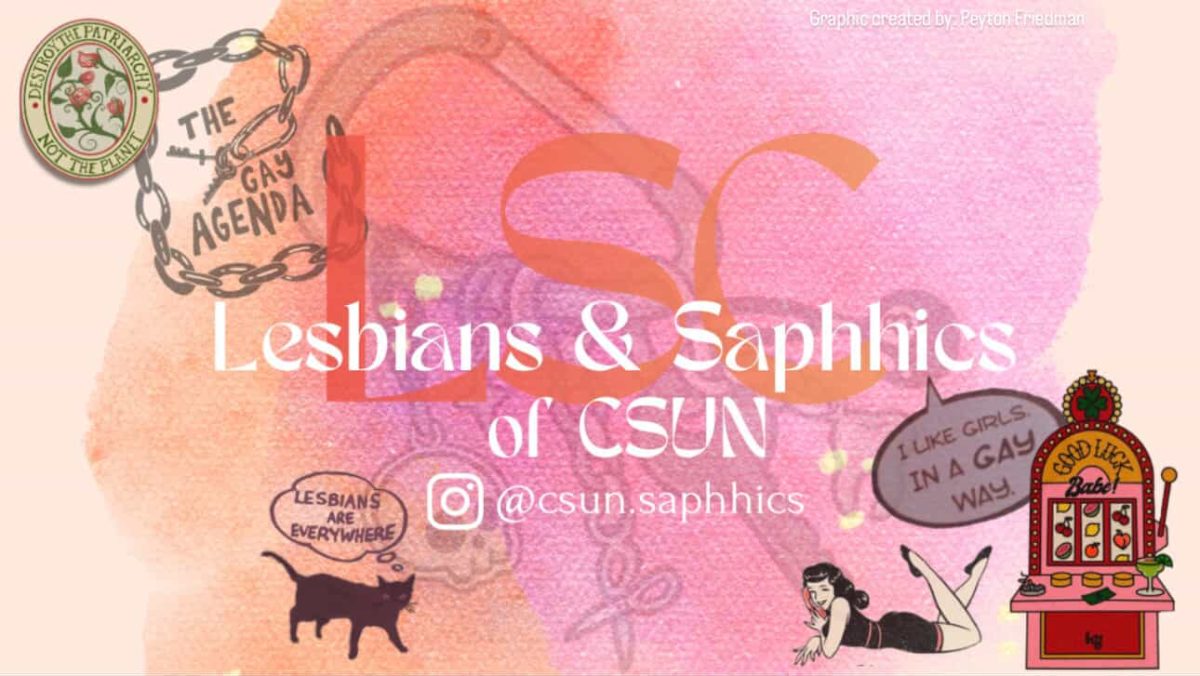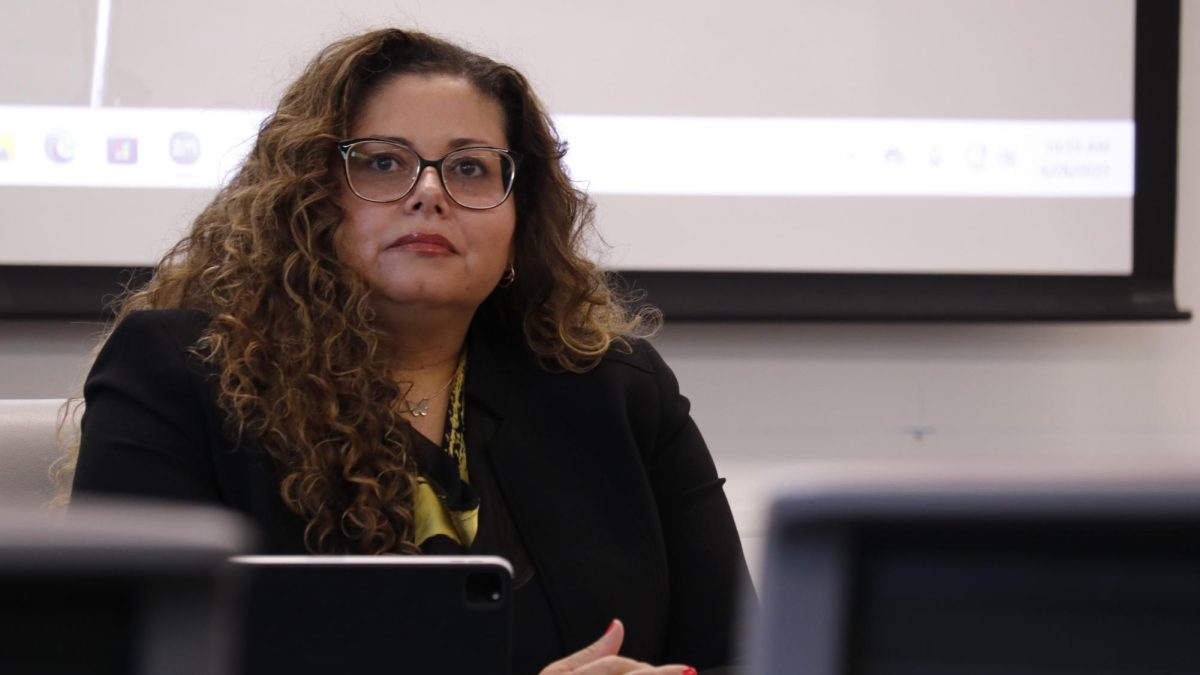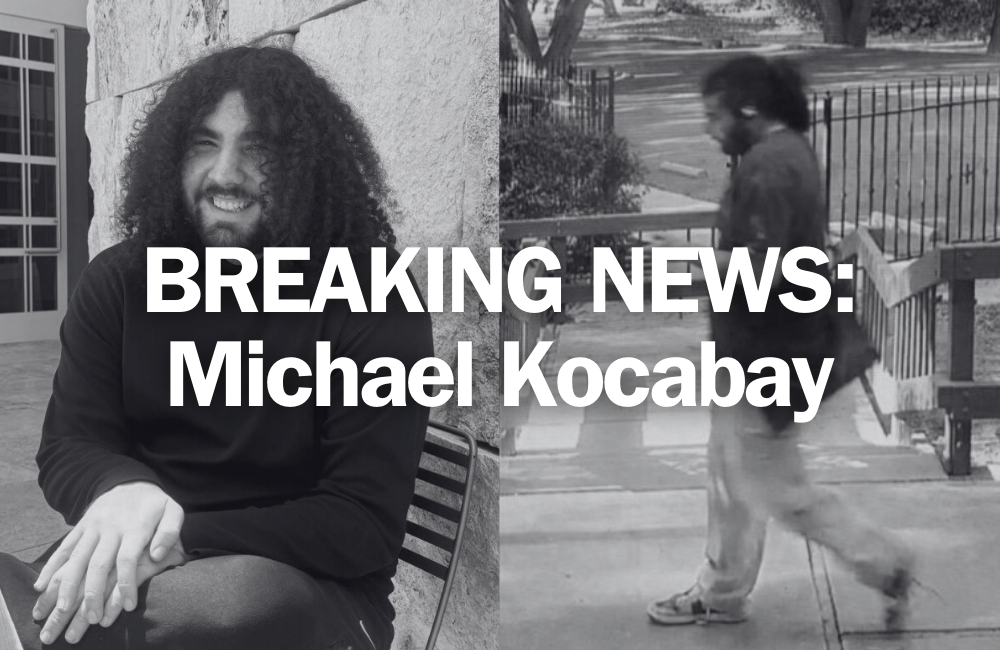With less than a week until Cesar Chavez day, Chicano issues are at the forefront of the American consciousness.
Four successful CSUN alumni, hailing from a wide range of careers, shared their unique Chicano perspectives at a panel discussion Wednesday night at the Grand Salon.
The panelists detailed their journeys and provided tips on how to navigate success in their respective fields.
Speakers Humberto Guizar and Oscar Mendoza were both born into challenging social situations which they were ultimately able to triumph.
“I had to get my first job at 9 years old,” said Mendoza. “I moved into the construction business when I was 16.”
Mendoza is now the CEO of the construction company Menco Pacific Inc, which he founded in 2007. The business employs over 120 people and has seen contracts with NASA and the Ministry of Defense. He is also the co-founder of Mendoza and Souza Spirits.
Mendoza graduated from CSUN in 2002 with a BA in Political Science.
Also hailing from tough beginnings, Guizar spent two years at a juvenile facility before arriving at CSUN in 1975.
“If you’d seen me back then you never would have thought that I’d go to college, or have an inch of the success enjoy now,” said Guizar. “I was a straight gangster; I couldn’t even write a full sentence when I arrived [at CSUN].”
After graduating CSUN in 1980, Guizar went on to law school where he would pass the bar despite being told by many that he would not. Guizar is now one of the highest regarded civil rights attorneys in California, and is a partner in the firm Guizar, Henderson and Carrazco. He is also the only attorney in Southern California who appears in courts as a “gang-expert.”
Both men stressed the importance of improved Chicano representation in the business and legal industries.
“When I came into the industry, 4 percent of lawyers were Hispanic. I’m sad to say that number is only 6 percent today. We need more Chicano lawyers, people who understand our experience,” said Guizar.
“For me, being of Mexican heritage has helped me a lot in the business world. Not enough Chicano people are taking advantage of this,” said Mendazo.
All of the panelists credited their CSUN educations as being integral to their post-graduate accomplishments.
“Learning at CSUN really shaped me as a person as well as an artist,” said singer Ixya Herrera.
Herrera has been singing professionally since she was 12 years old, but decided it was important that she receive an education also. A singer of traditional Mexican music, Herrera was nominated for a Grammy earlier this year. She currently has three albums to her name.
Herrera understands that many Chicano people may feel that their situation is helpless, but she laments the effectiveness of dedication and discipline in reaching goals.
“I wasn’t even a naturally talented singer, but I wanted to be great,” said Herrera. “It’s because I put so much work into my instrument that I am where I am today.”
2014 CSUN graduate Raquel Roman studied as a full time student, while also working as the Director of the Guadalupe Homeless Project. She is the first female and first Chicana director in the project’s history.
“I didn’t have any time to join clubs or be as involved with CSUN as I would have liked to, but getting out there and making contacts is the best thing you can do for yourself,” said Roman.
All panelists stressed the significance of networking in garnering success.
“As a student you need to value the relationships that you make. I’m still in touch with many of the people I used to go to CSUN with, and we’re often helping each other out,” said Mendoza.
While there remains a large wealth gap between Hispanic communities and the national average, Guizar is confident that times are changing for the Chicano people.
“I can see a changing tide. We need to keep encouraging this growth and celebrating our successes,” said Guizar.
